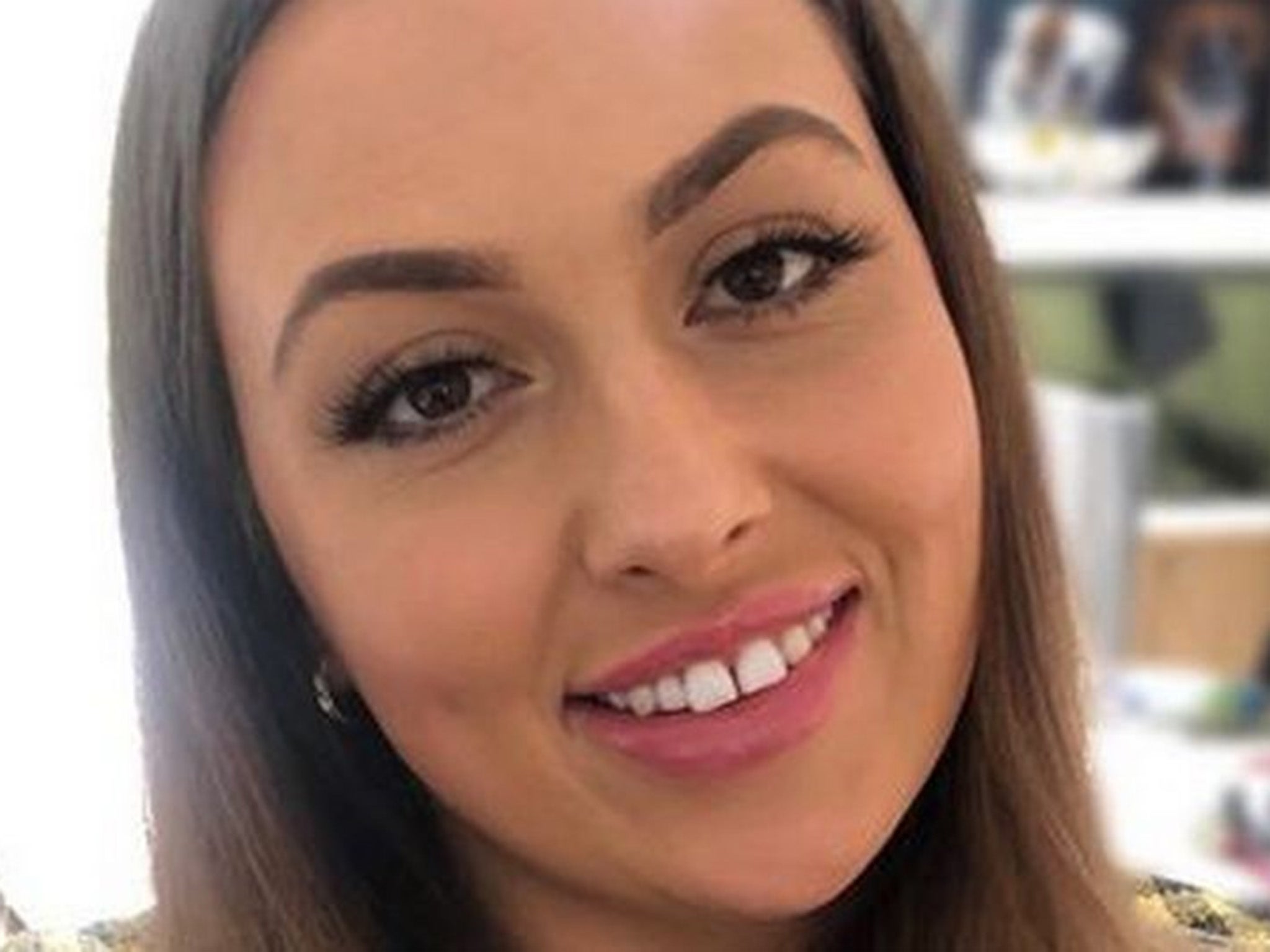‘My father killed my mother and got custody of me – now I’m fighting to change the law’
Exclusive: ‘I’ve always thought I’ve got to be careful what I say or do, because what if he kills me?’ Diane Clarke tells Maya Oppenheim


Diane Clarke was just 10 when she went through two life-changing losses. First, she lost her mother, who was stabbed to death in her own home. Then, she lost her father – the person who had killed her mother.
Pauline Benton, 32, was killed by her husband in 1978 after she told him she was seeing another man. Her death followed a “loveless” marriage in which she was allegedly controlled by her husband, who treated her as though she was a “possession”.
“When we got to the top of our street and there were blue flashing lights, I knew something was up,” Clarke tells The Independent. “All the neighbours were outside the house. There were ambulances and police cars there.”
The now 56-year-old recalls trying to go into her home in Cannock, Staffordshire, but being sent to her neighbour’s instead. Frustrated that nobody would explain what was going on, she had to wait until the next day for her grandfather to tell her news that no child should ever have to hear.
Clarke’s father was charged with her mother’s murder, which he denied, but he admitted manslaughter. He was sentenced at Birmingham Crown Court to three years in prison.
Clarke visited him in jail while living with her mother’s parents. Then, when he was released, she and her brother went to live with him again. As a child who could not fully understand the magnitude of what had happened, Clarke wanted to live with her father again, but now desperately wishes she had remained with her grandparents.
While Clarke’s situation may sound deeply shocking, she is not alone. Men who kill their partners in the UK automatically hold on to parental responsibility for their children – even if they are in prison. It means they remain in control of their children’s lives – including choosing where they live, and deciding on their healthcare needs, for example – unless a court removes parental responsibility.

Jade’s Law
With families up and down the country facing this situation, Labour has lent its backing to Jade’s Law: a proposed piece of legislation that would withdraw parental responsibility from a mother or father found guilty of murdering their child’s other parent.
In its current form, the proposed law – named after 27-year-old Jade Ward, who was stabbed and strangled in her home by her ex-partner Russell Marsh as their four young sons slept – would not cover a situation like Clarke’s, because her father was convicted of manslaughter, not murder.
But the mother of two, now a domestic abuse campaigner, is calling for the law to be broadened in order to cover both crimes when domestic abuse is involved.

‘Play fighting’
Clarke tells The Independent that her mother met another man, which she saw as her “way out” of the toxic relationship with Clarke’s father. It was when she finally plucked up the courage to tell her husband the truth that he turned violent.
A newspaper cutting about the case describes how Benton’s husband – “incensed” at hearing of her six-month affair – “plunged a bread knife into her chest”.
“It was sold in the newspapers and in the court as she asked for it because she had an affair,” says Clarke.
Court reports said Clarke’s father was a “normally placid man”, but a social enquiry report used in the case, seen by The Independent, quotes Benton’s father describing him as a “jealous man” who tended to treat his wife as “a possession”.
Clarke remembers how her father, who was married to her mother for 15 years, would physically fight with his wife until she would go into the bedroom crying. Her father would refer to this as “play fighting”, she says.

“My relationship with my mum wasn’t good, because my dad was getting me to mock her and abuse her as well,” she recalls. “So when he killed her, I missed my dad more than I missed my mum.”
While her father was in prison, Clarke spent her time looking after her mother’s parents, who were “wrapped up in their own pain”.
“They were on Valium. They were drinking,” Clarke recalls. “I was looking after them. They’ve lost their daughter, their daughter has been killed, you know – they’re devastated.”
She says nobody checked to see if she was coping when she started at a new school, and recalls the “traumatic” experience of sitting making a Mother’s Day card, which she addressed to her grandmother.
“I was getting bullied at that school by this time, as well, because I was getting more and more vulnerable. I didn’t tell anybody I was being bullied.”
‘I was having nightmares’
Living with the man who had killed her mother wasn’t easy. Describing the situation after he was released from prison, Clarke says she played the role of mum, doing the cleaning, washing and cooking, and feeling “desperately, desperately alone” while doing so.
“I was having nightmares,” she adds. “Somebody was trying to kill me in the dreams. I’ve always thought ‘I’ve got to be careful what I say or do, because what if he kills me?’ And even though he’s an old man now, I still have that fear.”
After leaving school, she “hit rock bottom”, getting into a relationship with a violent boyfriend and making an attempt to kill herself. Clarke is still vaguely in touch with her father, but effectively considers herself an orphan.
“If I saw him in the street, I would try and avoid talking to him,” she says. “But if I came face to face, the inner child would just be happy and pleasing and say hello and be respectful towards him, because that was the way I survived when I lived with him.”
Speaking to The Independent about Jade’s Law – which was debated in parliament at the end of last year – Ellie Reeves, the shadow minister for prisons and probation, urged the government to take action.
The Labour MP for Lewisham West and Penge, who leads on violence against women and girls in the justice team, said: “It is shocking that, as the law currently stands, killers retain parental responsibility after murdering their child’s mother – enabling them to continually abuse and assert control over their children even from prison.
“Labour has called for Jade’s Law to automatically suspend parental rights for fathers who have murdered their child’s mother. This will put the rights of victims above those of perpetrators, and work to end violence against women and girls. That is how we will prevent crime and protect families.”
A spokesperson for the Ministry of Justice told The Independent: “Judges are required to put the welfare of children first, and can effectively remove all rights and powers from a parent who has murdered the other.”
Responding to the Jade’s Law petition, the government said it recognises that in situations where a parent is convicted of the murder of another parent, the process can be “onerous”.
Dr Adrienne Barnett, who specialised in family law while practising as a barrister for more than 30 years, told The Independent it is “incredibly rare” for a father’s parental responsibility to be withdrawn, “even in the most heinous and harrowing circumstances”.
Hazel Mercer, of Advocacy After Fatal Domestic Abuse, says the families she supports after domestic homicide find the fact that perpetrators still have parental rights “highly traumatic”.
The national domestic abuse helpline offers support for women on 0808 2000 247, or you can visit the Refuge website. There is a dedicated men’s advice line on 0808 8010 327. Those in the US can call the domestic violence hotline on 1-800-799-SAFE (7233). Other international helplines can be found via www.befrienders.org






Bookmark popover
Removed from bookmarks